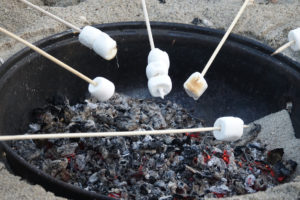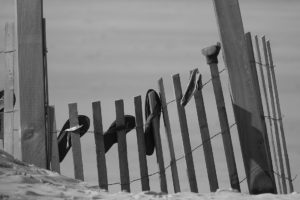Settled in 1639 as part of Yarmouth, Dennis is a town in Barnstable County, located near the center of Cape Cod. The town encompasses five distinct villages, which are Dennis (including North Dennis), Dennis Port, East Dennis, South Dennis, and West Dennis. The town officially separated from Yarmouth and was incorporated in 1793. It was named after resident minister, Rev. Josiah Dennis. There was not enough land for farming, so seafaring became the town’s major industry in its early history.
The town of Dennis spans from Cape Cod Bay to the north and Nantucket Sound to the south. It has stunning, white-sand beaches on both the bay side and the ocean side, which offer something for everyone, from families who want to spend the day to couples in search of that perfect sunset. Few places are more scenic.
The 1736 Josiah Dennis Manse and the 1745 Schoolhouse (listed on National Register of Historic Places) are located at 61 Whig St., Dennis. This is the saltbox home of first minister and man for whom the town was named. Here can be found artifacts of early Dennis life, a children’s room, a spinning and weaving exhibit, gardens and a Dennis maritime wing. It’s open for tours, but you’ll want to check the schedule on the Dennis Historical Society web page first (dennishistsoc.org).
Cranberry cultivation had its beginning on Cape Cod when, in 1816, Henry Hall, a Dennis village citizen, discovered that wild cranberry plants, covered by winter’s wind-blown sand, produced bigger and more plentiful berries. The practice of covering cranberry bogs with sand soon caught on. Early cranberry harvesting was done by hand using scoops.
The Cape Playhouse, located in Dennis Village, is America’s oldest professional summer theater. Founder Raymond Moore moved an abandoned Unitarian meetinghouse to land on Old King’s Highway he had acquired in the 1920s. The theater opened in 1927 with a play starring Basil Rathbone. Henry Fonda and Bette Davis (a former playhouse usher) made their acting debuts here.
Bass River Light was among the last of 30 lighthouses erected beginning in 1797 on Cape Cod and the Islands. Built in 1855 atop a large keeper’s house, it had a range of 12 miles and flashed a white light every six seconds. The lighthouse replaced a lantern hung in the attic window of a private residence. It provided safe passage for an active fishing and packet fleet for 60 years. The light was shut down in 1880, re-activated in 1881 and continued until 1914. Acquired as a private residence, the keeper’s house was expanded in 1933 and later as the Lighthouse Inn.
The Village Library is a Gothic-style former 19th-century residence, cobbler shop, and the home of a poetess. It has been, for many years, one of the town’s four little libraries. Likely moved to this site in 1856 from a Yarmouth church campground, it was originally owned by John Rose, the first Portuguese resident of the town. It became the South Dennis Free Public Library in 1918.
Benjamin Franklin Baker (1858-1927) is the only Cape Cod native to be awarded the Congressional Medal of Honor. Chief Master at Arms Baker was cited for “extraordinary bravery and coolness” while participating with 13 other Nashville crew members in a perilous mission during the Spanish-American War in 1898. Baker served in the US Navy during the Spanish American Way. He is buried at Swan Lake Cemetery on Depot Street in Dennis Port.


























